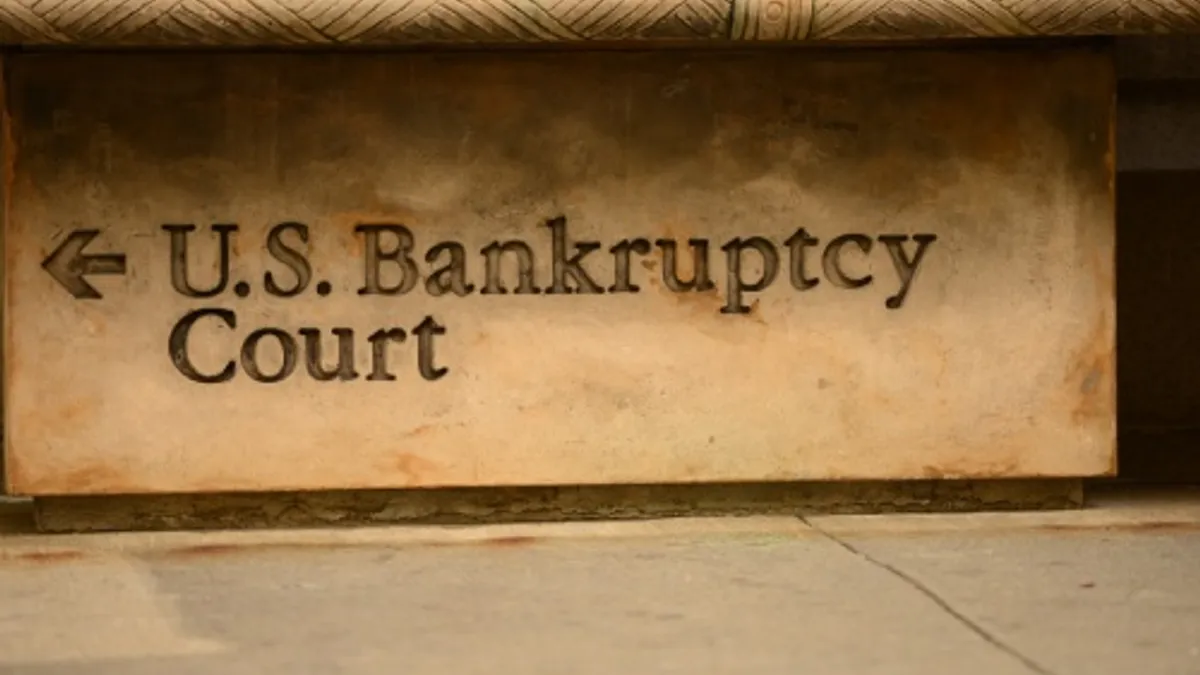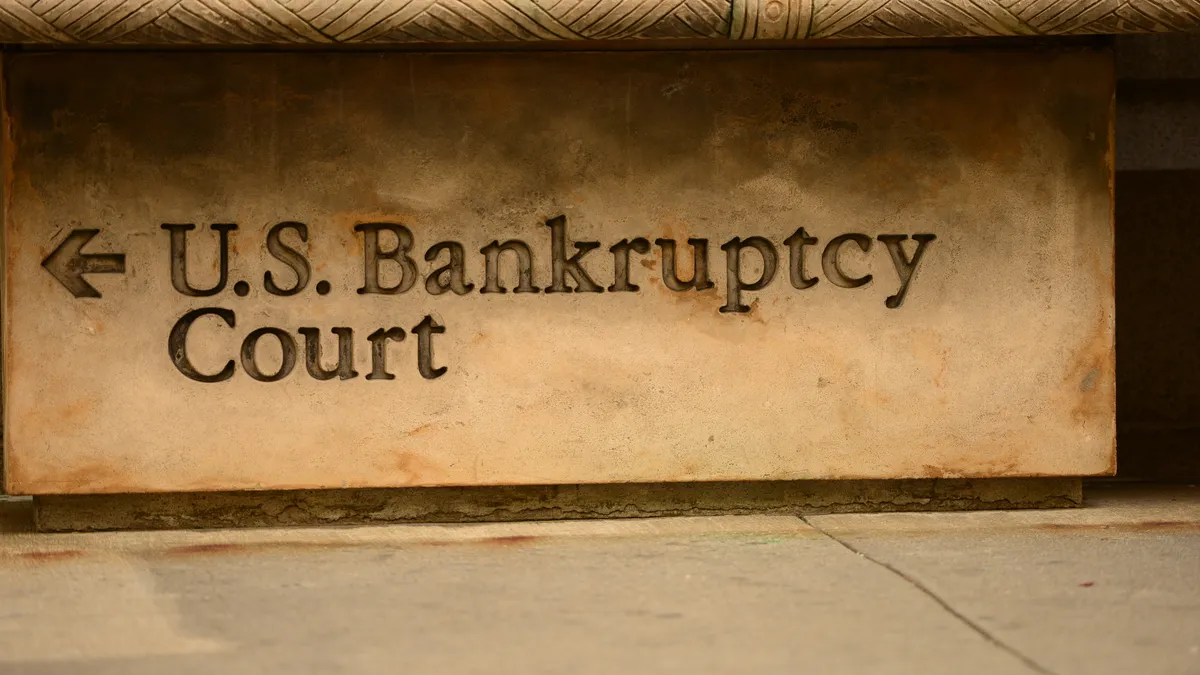Grand Canyon University (GCU) issued a lengthy response on Tuesday to the U.S. Department of Education's decision last week to continue to regard it as a for-profit institution for the purposes of receiving federal student aid. That decision, which opens the university up to a higher level of scrutiny, comes as current and former for-profit college operators continue to attempt similar conversions.
Critics of such maneuvering say it gives those companies cover from regulations designed to prevent colleges from accessing Title IV funds if they mislead students about their post-graduation employment prospects. However, some observers have said it lets companies explore new modes of delivering education.
Grand Canyon University in January 2018 asked the Ed Department to review its plans to spin off from its publicly traded parent company, Grand Canyon Education (GCE), as a nonprofit entity that would then contract with that firm for education services. It was the second time the Phoenix-based Grand Canyon, which enrolls more than 104,000 students on-campus and online, attempted a separation.
After five months of waiting for a response and on the advice of its lawyers, Grand Canyon said it went ahead with the move. The IRS and the university's accreditor, the Higher Learning Commission, had already signed off on the changes.
But in an 18-page letter shared with Education Dive on Tuesday, the department takes aim at several elements of the $853 million transaction. Among its conclusions is that GCU cannot advertise itself as a nonprofit institution, writing that it might be "confusing to students."
The letter was delivered to GCU shortly before a call with investors last week to discuss its most recent quarter, according to the university. GCU said in its latest statement that it expected the department would make the letter public.
In its statement Tuesday, GCU said it was "surprised and disappointed" by the department's decision, alleging the department "made critical errors in its understanding of the facts and its application of the law." It claimed the department was "unwilling to have any meaningful discussions" over the past 22 months about the proposal to spin off GCU as a nonprofit.
The nonprofit decision
Although the IRS approved the nonprofit conversion, the department says in its letter that it has the right to determine if schools are considered for-profit or nonprofit for the purpose of access to Title IV funding. It used a three-part vetting process taken from the tax code, which includes checks on whether an organization's earnings benefit private shareholders, and that the state and IRS have deemed it a nonprofit.
"The position that Ed takes in its letter is that they're the ones who get to interpret what that language in their regulation means, and they say they are going to apply the law that's been developed interpreting that same language in the tax code," Brian Galle, a law professor at Georgetown University, told Education Dive. "But they get to decide how that law is applied is any individual case."
He said the department may be reluctant to rely on the IRS's review due to concerns about lax oversight there. A review of IRS activity by The Washington Post found budget cuts have hamstrung its oversight abilities, making it easier for organizations that want nonprofit status to get it.
"We have a lot of reasons to believe the IRS is not doing vigorous oversight of who should be charitable right now," Galle said.
'Conflicting loyalties'
In justifying its decision to classify GCU as a for-profit, the department takes issue with the services agreement between GCE and GCU as well as Brian Mueller being the head of both organizations. It also asserts that there is other management overlap between GCE and GCU.
Observers have said Mueller being both CEO of GCE and president of GCU could be a conflict of interest in the transaction and the operation of the two entities.
The department wrote that although the organizations have independent boards, Mueller is also a GCE shareholder. It called the dual positions "obviously conflicting loyalties," saying it is "not satisfied" the current setup ensures Mueller's "undivided loyalty is to the Institution."
GCU says its accreditor approved the dual role and had "far greater substantive interaction" with the university during its own review process.
However, the department didn't mince words in its letter, writing that it "has concluded that the primary purpose of the (agreement), and by extension, the Transaction, was to drive shareholder value for GCE with GCU as its captive client — potentially in perpetuity."
Further, it alleges GCE executives had "extensive discussion" about the potential benefits of the transaction at a November 2017 board meeting, and that one executive later asserted the department reviewing the transaction after it closed could yield a higher valuation for the university, thus benefiting GCE.
GCU spokesperson Bob Romantic wrote in an email to Education Dive Wednesday that GCU has also benefited from the transaction, generating $78.8 million in revenue net of expenses in its first fiscal year as a standalone nonprofit institution. And it pulled in $123 million in operating cash with $325 million in cash reserves as of June 30, 2019.
"The fact that the transaction has been beneficial to GCE does not mean that GCU has not also benefited," he wrote. "These two perspectives are not mutually exclusive, yet the Department of Education seems to be ignoring the positive impact the transaction has had on GCU."
GCU in its statement Tuesday said the department should let the IRS decide what qualifies as a nonprofit. But the department said it doesn't have to "defer to" state and IRS approvals.
Galle said he is "not persuaded" by Grand Canyon's argument that the department didn't have the authority to interpret its own regulations and expects the dispute to eventually play out in court.
Inside GCU
The department's decision and GCU's pushback come as GCE has said it is looking to partner with additional colleges and universities. In addition to GCU, GCE supports Orbis Education, which it agreed to buy late last year.
Trace Urdan, a managing director with investment bank and consulting firm Tyton Partners, said the "fundamental question" with regard to GCU's nonprofit status is which governing authority has the power to make a decision one way or the other.
"I think a judge may have to decide that," he told Education Dive in an email Tuesday evening.
The department's letter also provides more details on the nature of the relationship between GCU and GCE.
GCE provides services to GCU in exchange for roughly 60% of its revenue from tuition, fees and other income sources such as athletic ticket sales. It is responsible for 28% of GCU's operating costs, according to the letter.
Additionally, GCE is the exclusive provider of certain services to GCU, including marketing, enrollment and budget consultations, student support and technology, the letter notes. The agreement has an initial 15-year term, with automated renewals in five-year increments afterward. GCU can break the agreement after seven years or when the debt from the transaction is repaid, but it must pay 50% of the services paid or due to GCE for the prior 12 months.
The department cites a report from Barclays that GCE filed in the lead-up to the separation. It notes GCE would get a "significant concentration" of GCU's revenue should the university be in a position of hiring the company for those and other services. That could raise the university's operating costs to as much as $1.5 billion in 2019, it quotes the Barclays letter as saying.
GCU's Romantic told Education Dive that the $1.5 billion expenses figure and 28% cut of operating costs "are based on a faulty calculation" that would have expenses double as a result of the separation “which is not true," he said. He added that GCU's operating expenses didn't increase following the transaction, and that such expenses are split about evenly between GCU and GCE.
GCU, in its statement, claims the department relies too heavily on the Barclays report and misunderstood another report from Deloitte in making its decision. According to the university, Barclays was a financial advisor only to GCE.






















